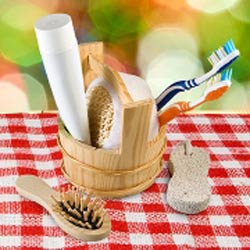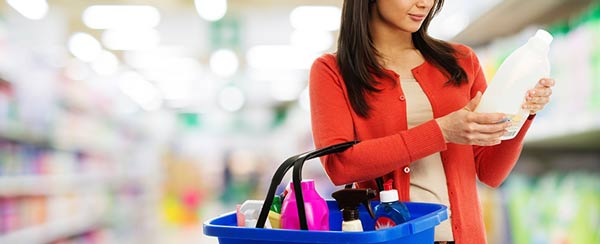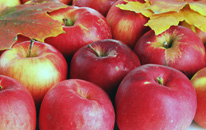This not That: Natural Alternatives for Your Everyday


by Cheryl Lock

The options these days are limitless. From the food and beauty aisles on down to cleaning supplies — shelves are stocked with everything from “natural” and “chemical-free” products to “organic,” “local” and “grass-fed” ones.
It’s as if we all need a PhD just to buy some shampoo.
Of course, you don’t really need a PhD to buy healthy products. To help get you started, we’ve created a list of 10 common, everyday goods, along with reasons why making the switch over to all natural makes (healthy) sense.
Deodorant: For products that you apply directly to your skin, it’s especially important to stay as close to all natural as possible. Deodorants that don’t adhere to the all-natural rules will likely contain parabens, synthetic ingredients (which could include hormone-disrupting fragrances and antibacterials) and aluminum compounds.
Toothpaste: All-natural toothpastes can be just as effective as anti-microbial based ones (as long as they’re ADA certified). Toothpastes with fluoride help prevent decay by crippling bacteria in plaque and re-mineralizing areas where acid damage has already occurred. But, moderation is key when using fluoride toothpastes – too much of it can cause dental fluorosis, a permanent discoloration of teeth that forms in streaks or spots.
Glass cleaner: Fumes from some regular cleaning products are believed to be linked to asthma and other respiratory problems. All natural products are environmentally friendly and better for your health.
Meat: When it comes to buying clean and healthy meat products, be wary of items labeled as just “natural”, which could just mean that no additives or preservatives were introduced after the product was processed. Instead, look for a “naturally raised” label which, according to the USDA, means the animal that produced that product was not fed antibiotics, growth hormones or any other animal by-products.
Shampoo: Shampoos that contain the compounds Cocamide and lauramide DEA may result in eye and skin irritation, and recent research suggests that prolonged exposure to these chemicals may even result in more serious health problems, like cancer.
Fruit: Toxic and harmful pesticides are what you’re trying to avoid when it comes to fruit, which is why the Environmental Working Group produces a list of the fruits with the worst pesticide rates. Apples, strawberries, grapes, celery and peaches all top the list, but you can get the full list here.
Disinfectant: Many of the common antimicrobial chemicals found in regular households disinfectants have been shown to cause eye, skin and respiratory irritation, as well as hormone imbalance and a potentially increased risk of breast cancer. All-natural disinfectant products would avoid the use of such harmful chemicals as triclosan, triclocarban, nano-silver and others.
Laundry detergent: Sodium lauryl sulfate, 1,4-dioxane, nonylphenol ethoxylate and phosphates are four of the big offenders when it comes to laundry detergents. They cause issues like skin and eye irritation, developmental and/or reproductive toxicity, and even possible mutations and cancers.
While the offenders might seem particularly scary, picking just one or two products to make the switch over to all natural can make a big difference. Start with some of the ones on this list, and you’ll be well on your way to healthy living.




